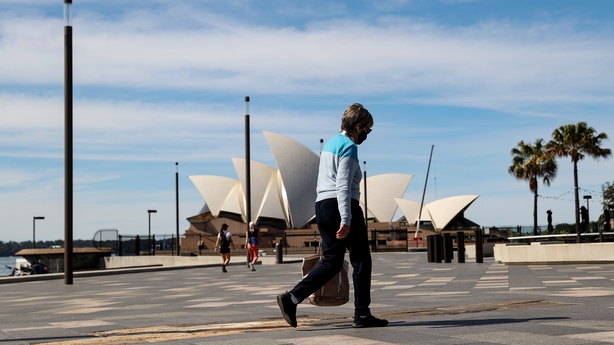New Zealand has reported its first recorded death linked to Pfizer/BioNTech's Covid-19 vaccine, the health ministry said, after a woman suffered a rare side effect leading to inflammation of her heart muscle.
The news of the death comes as the country battles an outbreak of the Delta variant after nearly six months of being virus free. It followed a review by an independent pane lmonitoring the safety of the vaccines.
"This is the first case in New Zealand where a death in the days following vaccination has been linked to the Pfizer Covid-19 vaccine," the ministry said in a statement, without giving the woman's age.
The vaccine monitoring panel attributed the death to myocarditis, a rare, but known, side effect of the Pfizer vaccine, the ministry added.
The US Centers for Disease Control and Prevention today said no deaths had been reported in young adults linked to this rare side-effect.
So far, 2,574 preliminary cases of heart inflammation had been reported in the US, out of which 1,282 occurred after the Pfizer shots, and 557 after the Moderna vaccine.
Myocarditis is an inflammation of the heart muscle that can limit the organ's ability to pump blood and can cause changes in heartbeat rhythms.
In response, Pfizer said it recognised there could be rare reports of myocarditis after vaccinations, but such side effects were extremely rare.
"Pfizer takes adverse events that are potentially associated with our vaccine very seriously," it said.
"We closely monitor all such events and collect relevant information to share with worldwide regulatory authorities."
The New Zealand health ministry said other medical issues at the same time could have influenced the outcome after vaccination.
But the vaccine's benefit outstripped risks from side effects, it added.
"The benefits of vaccination with the Pfizer Covid-19 vaccine continue to greatly outweigh the risk of both Covid-19infection and vaccine side effects, including myocarditis."
New Zealand has provisionally approved use of the Pfizer/BioNTech, Janssen and AstraZeneca vaccines, but only the Pfizer produced vaccine has been approved for rollout to the public.
Today's 53 new cases took New Zealand's tally of infections in the current outbreak to 562, amid a nationwide lockdown enforced this month to limit spread of the Delta variant.
Prime Minister Jacinda Ardern said Auckland will stay under an alert level 4 lockdown for another two weeks.
Addressing a news conference, Ms Ardern said restrictions in Northland - a region on the northern-most tip of the country bordering Auckland - will be eased to alert level 3, effective midnight on Thursday, from level 4.
Australian state warns Covid-19 hospitalisations to peak in October
Intensive care cases in Australia's New South Wales will hit a peak in October as Covid-19 infections accumulate, said the premier of the country's most populous state, which reported record daily new infections today.
New South Wales, the epicentre of Australia's current outbreak, declared a record 1,290 new cases as the nation struggles to contain the highly contagious Delta variant.
Premier Gladys Berejiklian said the state was preparing for additional hospitalisations, before increased vaccination coverage starts to ease the pressure.
"We anticipate that the worst month, the worst time for our intensive care unit will be in October," Ms Berejiklian said in the state capital Sydney.
"We will need to manage things differently because we are in the middle of a pandemic, but we will cope."
There are 840 people in hospital for Covid-19 in New South Wales, with 137 in intensive care and 48 requiring ventilation.
The state reported four additional fatalities today, taking the Covid-19 death toll to 1,003 in Australia, the last of the Group of 20 big economies to exceed that milestone.
One of the four was the first known death of an Aboriginal person. The 50-year-old man, who was not vaccinated, lived in western NSW where vaccination rates are particularly low, raising fears there will be many more deaths there.

Nationwide, a record 1,375 new Covid-19 cases were reported.
Australia has used a system of strict lockdowns and quarantine to keep coronavirus infection and death rates lower than in most comparable nations, however the Delta variant is now pressuring health services.
Just over 33% of those aged 16 and older have received two vaccine doses, well below most comparable nations, according to government data.
The delays were partly because of changed health advice over the use of the AstraZeneca vaccine, which was to be the backbone of the country's immunisation programme, after rare cases of blood clots among some recipients.
The pace of vaccination in Australia has since risen to a seven-day average of more than 250,000 doses a day, the fastest rate ever, according to a Reuters analysis.
Australia's second-most populous state, Victoria, reported 73 new Covid-19 cases, a day after Premier Dan Andrews said he would extend lockdown measures as daily infections reached the highest in a year.

